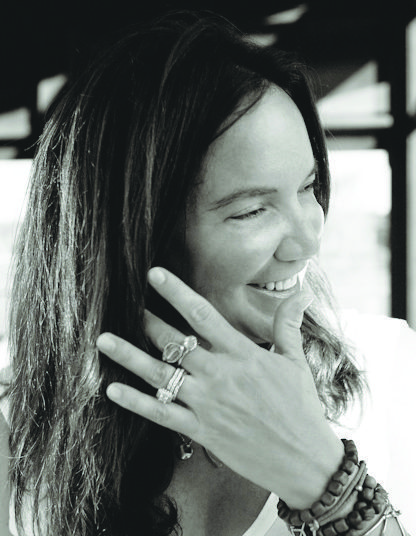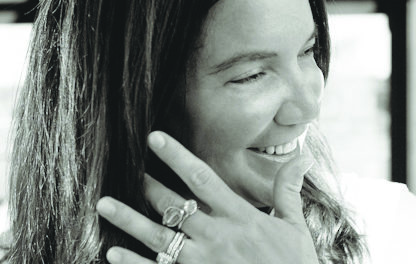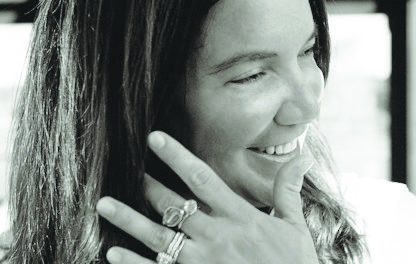 There is the saying down here in the south that we don’t hide the crazy people in our family; we set them out on the front porch and give them a cocktail.
There is the saying down here in the south that we don’t hide the crazy people in our family; we set them out on the front porch and give them a cocktail.
I think that is why I love it here so much. Normal isn’t a state of being; no, along with permanent press and delicate, it’s just a setting on the dryer; and eccentricities, the art of conversation, and cocktailing reign supreme.
My first foray into all three would be at my paternal grandmother’s house. Her name was Norma Compton Williamson-Moore of Athens, GA, and one of my greatest regrets is she didn’t live to see the birth of her first great-grandchild. Livi was born only 11 months and 13 days after Norma entered the pearly gates and greeted St. Peter (in, what I can only imagine, was a half-length sable fur coat, 3 inch pointed-toe heels and a pair of diamond stud earrings).
But with that being said, Livi would have still had to wait another 18 years to sit at the formal dining table with the other adults, seeing as this was my grandmother’s unsaid, but wholly recognized, golden rule. According to the Greatest Generation, children were meant to be seen, not heard, and why have them propped up and spilling things when they contributed nothing substantial or of any amusement to the table. And you would never ever question an adult who lived through World Wars and the Great Depression, or an aunt named Enide, so you’d get in your jammies, say goodnight to the table, and eat your Stouffers on a tray in front of the TV before moseying on to bed without a hair of pomp or a scant trace of circumstance.
Now, once you were allowed entry way onto the 11 by 4-foot oval heft of mahogany, it was a whole other ball of paraffin wax Grandma would normally dip her dainty fingers into at the local Merle Norman. To the left of your fine china dinner plate would sit a small salad consisting of a single piece of Iceberg lettuce, half a peeled (uhm…canned) pear topped with a dollop of mayo and a sprinkling of cheddar cheese. Sounds odd, I know, but there is a reason pear salad is considered a southern delicacy; cause it’s well, delicious. Oh, and there was always a dinner roll of some kind with a cold pat of butter next to it. To the right is where you would find a glass from the substantial set of her 1950 Peruvian wedding crystal, displayed in all its glinted and fine cut glory. There was the cordial, the champagne, the low ball, then the high, the wine, and the aperitif, all filled with varying amounts of preciously lush and full-bodied elixirs.
Don’t forget the coffee poured into the cup and saucer topped with a generous splash of Bailey’s Irish Creme after the table was cleared and the cards were dealt. Hours unfolded like yards of lace and tales were spun until it was time for a neighborhood walk or a whirl around the dance floor at the VFW down the road and to the right. You felt like you earned the right to call yourself a bona-fide grown-up. It was definitely worth the long tv-dinnered wait.
I still find it fascinating - no, comforting - that a generation of people who lost everything at one time or another, whether to war or poverty and long bread lines, not only survived but thrived in creating a rich and distinctive culture. Afterwards, their houses remained smaller, their cars still cheaper and older, their vinyl records still scratched, and their bank accounts modest in the end, if not scant, but their doggedness and love of laughter, family, food, music and good old-fashioned fun remained and brimmed over in heart, reticent to change. And for that I am grateful.
Another interesting occurrence that unfolded and put the South on the map during the Great Depression was born out of Prohibition. The good people down south in the Appalachian mountain range found a way to survive and feed their families by boiling down and fermenting corn mash into a clear and unoaked whiskey called moonshine, sometimes even using old carburetors as a still. Why call it moonshine? Well, because it was against federal law to make and sell it and this process had to be carried out in the woods and under the cloak of darkness with only the moonlight for guidance. The clear, whopping pack of 110 % + of eye burning alcohol was then distributed across the country by bootleggers in roadsters that had to quickly learn how to race one another, as well as the law, all across the country supplying the rest of the US with illegal liquor. This, folks, is where NASCAR came from.
It’s intriguing to know moonshine has only been available for purchase this past decade. Distilleries like Ole Smoky Moonshine opened up when Tennessee first legalized the sale of moonshine in 2010, followed by Kentucky, Alabama, Georgia, and South Carolina. It is typically sold in vintage mason jars and, like the old days, you are encouraged to sip it straight out of the jar to experience the nuanced and complex finishes of cherries, apple pie and sweet peach, to name a few.
It makes me wonder if my grandmother was alive today for the renaissance of the classic staple that defined the Great Depression, would she serve it in a cordial glass? After all, moonshine in her era was called many things, all slightly sinister: white lightening, hooch, skull cracker, catdaddy, hillbilly pop, wild cat and ruckus juice.
Personally, I believe she would have foregone the crystal, winked and taken a swig straight from the jar. Tenacity comes in many forms and my grandmother was one of them. Like the bootleggers would say, especially amid adversity and times of need, shine on. And here’s to you.





